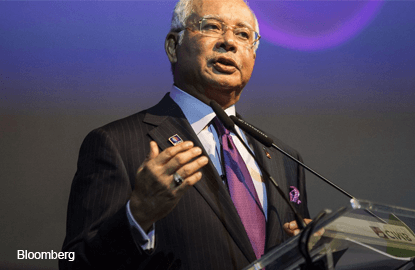
KUALA LUMPUR: Prime Minister Datuk Seri Najib Razak wants to see a bigger contribution from the digital economy to Malaysia’s annual gross domestic product (GDP), which stands for the total value of all goods and services produced by the country in a year.
“The digital economy contributed 17% to our national gross domestic product in 2014. I hope this number will surpass 17% in future,” he said during the launch of the #mydigitalmaker initiative, a movement to promote digital competency among Malaysian youths by the Malaysia Digital Economy Corp (MDEC) yesterday.
Najib said Malaysia recorded over 88,107 jobs in computer science-related fields in 2015. The average salary of digital workers are also getting “more competitive as demand for their expertise grows”.
Thus, Najib said computational thinking will be integrated under the Primary School Standard Curriculum, while computer science will be integrated into the Secondary School Standard Curriculum, to promote digital competency.
Computational thinking will be implemented in primary schools in phases, starting with Standard 1 in 2017, while computer science will be offered in secondary schools, starting with Form 1 and Form 4 next year.
Najib said computational thinking teaches students design thinking, logical reasoning and problem solving, all of which are valuable skills that form the backbone of the digital economy.
The integration of the two subjects should benefit an estimated 1.2 million students from 10,173 schools nationwide next year. Some 9,200 teachers are now undergoing training on how to integrate the two into their classroom teachings. The subjects are also being integrated in teacher training colleges.
During the launch, MDEC chief executive officer Datuk Yasmin Mahmood Yasmin shared that private sector involvement is already evident in the holiday internships, teaching modules, and various training and tools they provide to support the digital competency agenda.